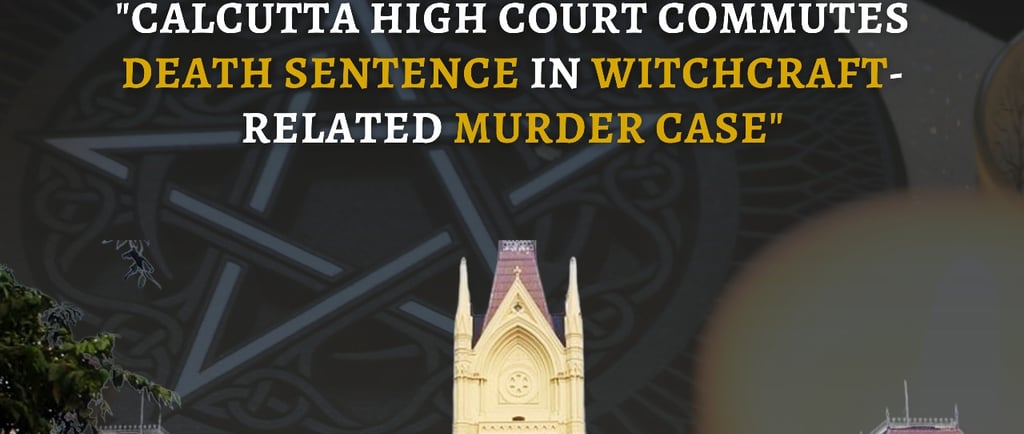"Calcutta High Court Commutes Death Sentence in Witchcraft-Related Murder Case"
The Calcutta High Court, in the case of The State of West Bengal v. Radha Kanta Bera, commuted the death sentence of a man convicted of beheading a woman in a temple on the suspicion of witchcraft. A Division Bench comprising Justices Debangsu Basak and Md Shabbar Rashidi observed that the convict was suffering from mental illness and concluded that the case did not meet the threshold of the 'rarest of rare' category necessary to warrant capital punishment. In view of the circumstances, the Court held that life imprisonment would constitute an adequate and just sentence, thereby setting aside the trial court’s order of capital punishment and substituting it with imprisonment for life.
7/29/20251 min read


Radha Kanta Bera was convicted for the brutal beheading of a woman inside a temple in West Bengal. He suspected the victim of practicing witchcraft. The incident deeply shocked the local community, and the trial court awarded him the death penalty, deeming it the 'rarest of rare' case.
Mental Health Condition:
The High Court examined medical records and noted that the accused suffered from mental illness, which likely impaired his judgment and understanding of the consequences of his actions.
Rarest of Rare Doctrine:
The Court emphasized the guidelines laid down in Bachan Singh v. State of Punjab regarding the imposition of the death penalty. The doctrine requires that capital punishment be reserved only for the gravest cases where life imprisonment is insufficient.
The Bench highlighted that reform and rehabilitation are key considerations in sentencing. Given the mental condition of the accused, the court did not find any conclusive reason to rule out the possibility of reformation.
Social Factors:
The judges observed that incidents linked to superstition and witchcraft often stem from deep-rooted ignorance and mental instability, which must be addressed by social awareness rather than purely retributive punishment.
The Calcutta High Court commuted the death sentence of Radha Kanta Bera to life imprisonment.
The Court held that the case does not fall in the 'rarest of rare' category due to the accused’s mental condition and the lack of prior criminal record.
The judgment underlines the humane and reformative approach of the judiciary while dealing with heinous crimes. Although the act was gruesome, the Court prioritized:
Mental health considerations
The possibility of rehabilitation
Judicial caution in applying the death penalty
It sends a message that even the gravest crimes need a nuanced approach, especially when the offender suffers from mental illness. The decision reinforces the principle that capital punishment must be used sparingly and with extreme care.
